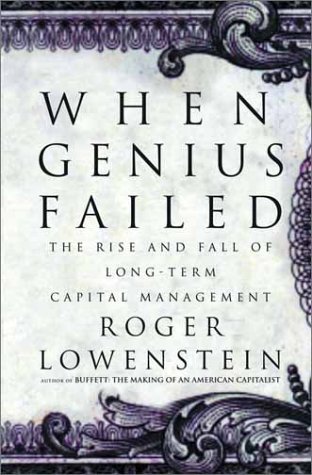More on this book
Community
Kindle Notes & Highlights
Read between
August 9 - September 14, 2020
Whenever markets plunge, investors are stunned to find that there are not enough buyers to go around. As Keynes observed, there cannot be “liquidity” for the community as a whole.6 The mistake is in thinking that markets have a duty to stay liquid or that buyers will always be present to accommodate sellers. The real culprit in 1994 was leverage. If you aren’t in debt, you can’t go broke and can’t be made to sell, in which case “liquidity” is irrelevant. But a leveraged firm may be forced to sell, lest fast-accumulating losses put it out of business. Leverage always gives rise to this same
...more
Whether any mathematical system designed with a previous crisis in mind can ensure against future debacles is doubtful,
To say that markets are usually sensible, and ordinarily better than government at determining the proper spread between credit instruments (the task that LTCM set out for itself), is not to say that markets are always right. The difference is crucial, for it is the difference between recognizing the need for market supervision and adopting a pose of absolute noninterference.


